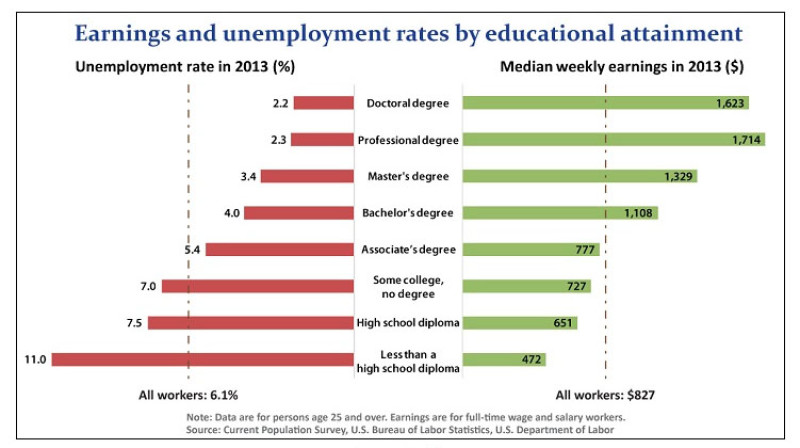Data Matters: Community College Degrees Boost Earnings, Employment
By Rebecca L. Weber
March 20, 2015
Examining the correlation between earnings and unemployment based on education degrees attained.
Community college graduates bridge the wealth gap between people with a high school education and people with a four-year degree, both in terms of employability and earned income, as shown in an infographic recently posted on NationSwell.

A new look at information gathered from the Current Population Survey, conducted jointly by the U.S. Bureau of Labor Statistics and the U.S. Department of Labor, shows how community college graduates as a whole earn more and have a lower rate of unemployment than do those who haven’t earned a college degree. Overall, the data show a strong trend: The higher the education attained, the higher the rates of employment and pay, with an anomaly of professional degree holders tending to earn more than those with a doctorate.
The unemployment rate for an associate degree holder in 2013 was 5.4 percent — well below the average of all U.S. workers (6.1 percent) and lower than those with “some college” (7 percent) or a high school diploma (7.5 percent). Unemployment rates for those with a bachelor’s were lower, at 4 percent.
Holders of associate degrees earned an average $727 per week in 2013, less than the average weekly earnings of $827 across all levels of education attainment and those with a bachelor’s ($1,108). Those with “some college” typically earn less ($727 per week), and those with a high school diploma, even less ($651 per week).
The bottom line? Community colleges’ mission to connect graduates with better job opportunities is literally paying off.






